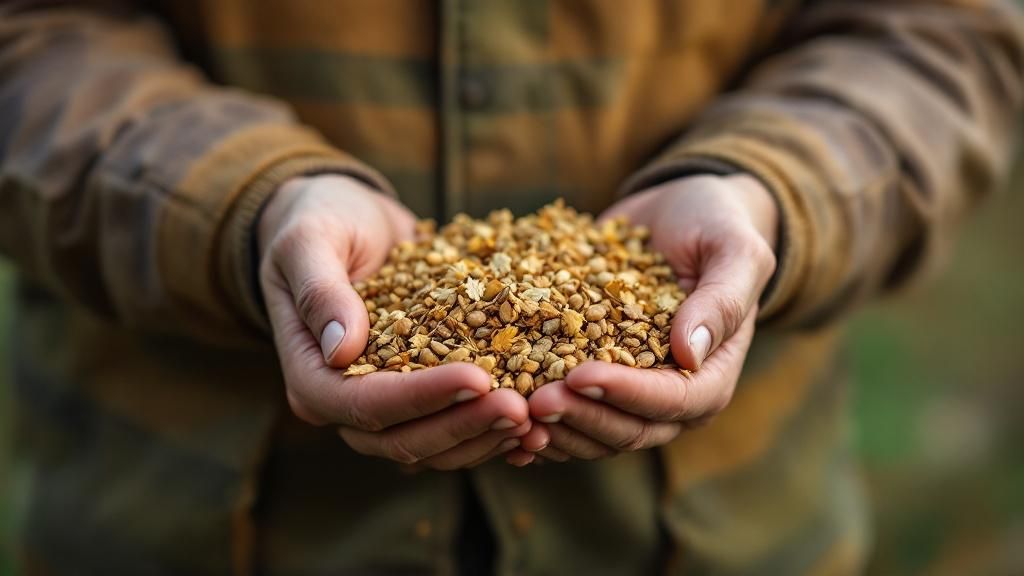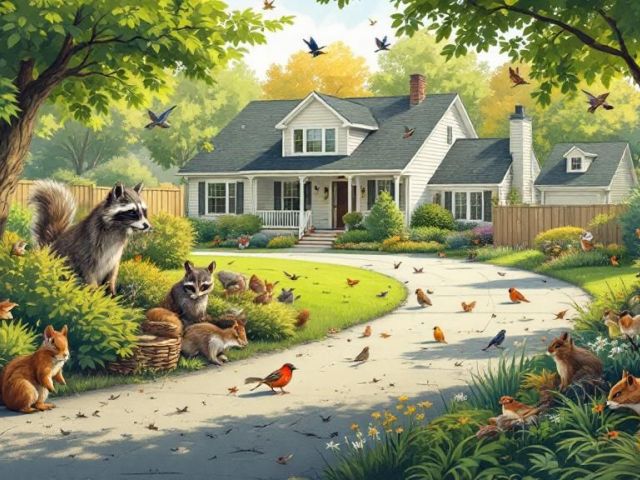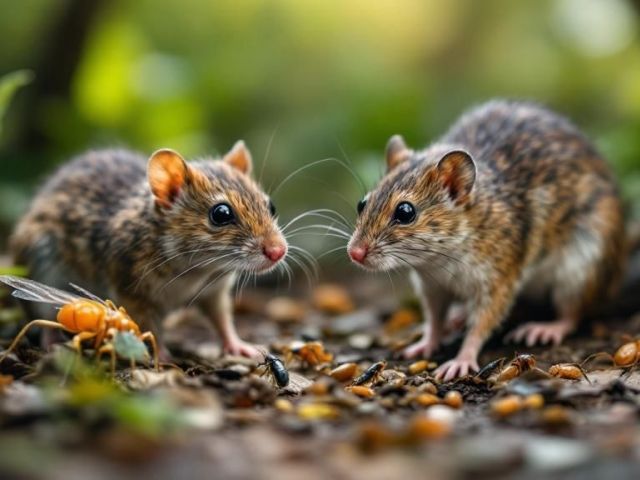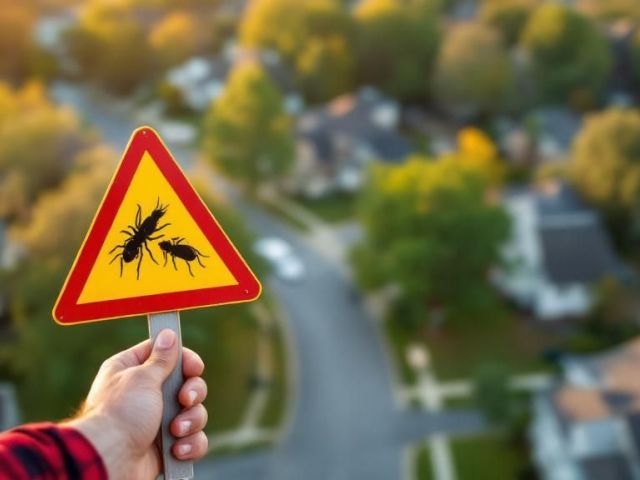Understanding Seasonal Wildlife Behavior
Key Takeaways
-
Seasonal wildlife activity increases the likelihood of pest-related encounters around homes.
-
Rodents, raccoons, and other wildlife seek shelter indoors during colder months.
-
Spring and summer bring increased nesting and breeding behavior in wildlife.
-
Understanding animal behavior by season helps guide proactive pest control decisions.
-
Professional pest management services can help mitigate wildlife-related pest issues.
Tennessee’s diverse ecosystems and distinct seasons don’t just affect the weather—they also influence the behavior of local wildlife. From rodents invading homes during the winter to increased activity from raccoons, squirrels, and birds in the warmer months, seasonal wildlife shifts often go hand-in-hand with pest problems. In this article, we’ll explore how seasonal wildlife behavior impacts pest control needs across Tennessee, including what homeowners and property managers should watch out for during different times of the year.
Winter Shelter Seekers: Rodents and Other Invaders
As temperatures drop in the fall and winter months, wildlife begins to seek warmth and shelter. This is when mice, rats, and squirrels are most likely to enter homes, garages, and attics through small gaps or vulnerable points in the structure.
Winter pest activity is driven by:
-
Food scarcity in natural habitats
-
Desire for warmth and nesting space
-
Access to indoor resources, like insulation or stored grains
According to recent data, rodent-related pest control calls spike between November and February in Tennessee, especially in urban and suburban areas like Nashville and Knoxville. These infestations aren’t just a nuisance; they can cause property damage, contaminate food, and even create fire hazards by chewing through wires.
Professionals recommend sealing potential entry points before cold weather sets in. This may include:
-
Installing door sweeps
-
Patching holes in siding
-
Sealing gaps around utility pipes
-
Trimming branches that give roof access
Spring and Summer: Nesting, Breeding, and More Activity
Warmer weather means more movement from both pests and larger wildlife. Birds, raccoons, and squirrels become more active in spring as breeding season begins. Unfortunately, some choose to nest in attics, crawl spaces, or wall voids.
Common spring/summer wildlife-related pests include:
-
Squirrels: Often enter through roof vents and soffits
-
Birds: Build nests in chimneys or dryer vents
-
Raccoons: Take shelter in attics or under porches
This season also marks a boom in insects and rodents as food sources become more abundant. These behaviors directly increase human-wildlife interaction, raising the risk of disease transmission and property damage.
For example, raccoons can carry parasites and diseases like roundworm and leptospirosis. Birds nesting in ventilation systems can lead to air quality issues. These problems underscore the need for early intervention during spring inspections.
Wildlife and Pest Activity in Rural vs. Urban Areas
While urban homeowners deal with rodents and nesting birds, those in rural Tennessee may face different wildlife pressures, such as:
-
Opossums or skunks denning under sheds
-
Snakes drawn to rodent populations or damp crawl spaces
-
Bats roosting in barns or attic rafters
Urban sprawl has pushed some species closer to populated neighborhoods, especially where greenbelts and food waste offer easy access. The overlap between urban development and wildlife migration paths makes prevention even more important in transitional areas.
When Wildlife Becomes a Pest Control Problem
Not all wildlife encounters qualify as pest issues—but when they threaten health, safety, or property, it’s time to act. Wildlife intrusion can trigger or worsen pest infestations by:
-
Damaging insulation and creating entry points for insects
-
Spreading fleas, ticks, and mites into homes
-
Attracting predators or scavengers
In these cases, pest control isn’t just about eliminating an insect problem—it may also involve exclusion work, wildlife removal, and cleanup services.
Companies like DOA Pest Service understand this overlap. Their technicians in regularly assist with rodent control that stems from seasonal wildlife nesting habits. Whether it’s identifying signs of raccoon activity or sealing up squirrel access points, the goal is to implement long-term solutions that consider both wildlife patterns and pest prevention.
Climate Change and Shifting Wildlife Behavior
Tennessee’s climate is shifting, with warmer winters and longer rainy seasons influencing how wildlife behaves. Animals that once hibernated through the cold months may now remain partially active year-round, extending the window for pest-related issues.
Predicted changes include:
-
Rodents reproducing more frequently
-
Earlier nesting for birds
-
Increased mosquito and tick populations
Staying ahead of these changes means taking a seasonal approach to pest management. This includes regularly updating prevention strategies and staying informed about local wildlife behavior through agencies like the Tennessee Wildlife Resources Agency.
Prevention Tips for Wildlife-Linked Pest Issues
Homeowners can take a proactive role in limiting seasonal pest risks by adopting the following strategies:
Spring/Summer:
-
Install chimney caps and vent covers
-
Schedule attic inspections for nests or droppings
-
Clear out overgrown vegetation and yard clutter
Fall/Winter:
-
Seal cracks and crevices around the home
-
Store food (including pet food) in sealed containers
-
Check crawl spaces and garages for signs of nesting
Also, avoid leaving pet food outside, secure trash bins, and use motion-activated lights to deter nocturnal animals.
If wildlife intrusion or pest signs persist despite prevention efforts, it may be time to contact professionals. Companies like DOA Pest Service offer seasonal assessments tailored to Nashville’s wildlife behavior, ensuring your home stays pest-free year-round.
Frequently Asked Questions
Which animals are most likely to become pests during Tennessee winters?
Rodents like mice and rats are most common, often entering homes in search of warmth and food.
Are wildlife encounters more common in rural areas?
Yes, though suburban and urban areas also see increased wildlife activity, especially near parks or wooded lots.
Can raccoons and squirrels damage homes?
Absolutely. They can chew through wood, wiring, and insulation, leading to costly repairs.
What should I do if I hear noises in my attic?
Call a pest control professional to inspect for nests or signs of entry. Avoid attempting removal yourself.
How often should I inspect my home for wildlife intrusion?
Ideally once per season, especially in early spring and late fall, to catch problems before they escalate.











